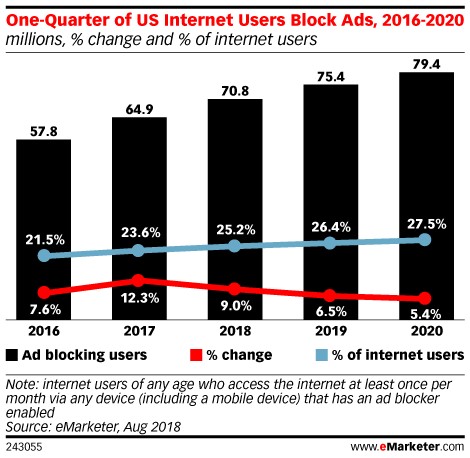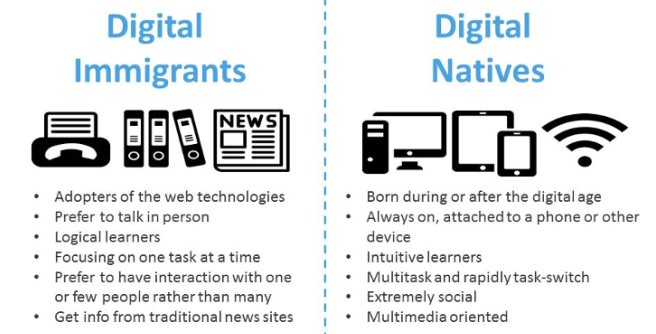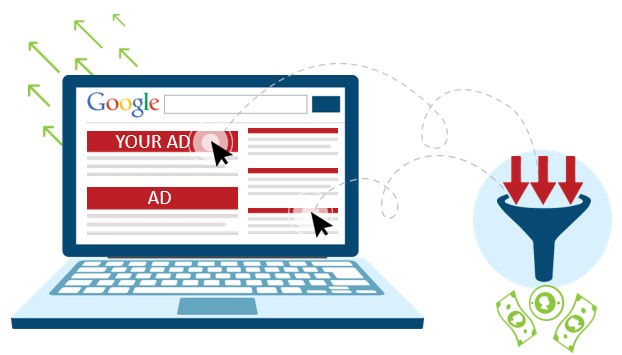
Ad Blockers Growth by Digital Natives: What Advertisers Need to Know
September 15, 2019
With digital natives growing older and having more control over their digital experience, we’re seeing a strong correlation with the increase in the use of ad blockers. This is nothing new – the advertising industry has seen a steady increase in the adoption of ad blockers, rising from approximately 21M users in 2010 to more than 180M users worldwide in 2019. In fact, in the US alone they’re seeing over 75M users using ad blockers on their browsers.

And it makes sense – digital natives are comfortable with technology and used to making it work to their ends. But what does that mean for digital advertisers and their clients?
What Are Ad Blockers?
Ad blockers – also known as content blockers – are simple software programs that prevent ads from being shown on websites. They are typically browser add-ons that you can add to Chrome, Firefox or Safari. And even through there are dozens of alternatives, the most popular ad blocker add-on in the market is AdBlock Plus.
By removing ads from webpages, page loads time can improve considerably and can also reduce data usage – something that is good news for people with limited data plans or who live in areas with slower networks.
Another benefit of ad blockers is that they can block the tracking and behavioral monitoring technology that profiles user behavior. So if you’re someone who doesn’t want their online browsing monitored or their browsing preferences sold to advertisers, ad blockers can be an attractive way to guard your privacy.
Who are Digital Natives?
The term Digital Native describes a person who grew up in the digital age. These are children, now young adults, who rather than having to learn about technology as adults, grew up with it from childhood. This exposure to technology in their formative years means that digital natives have a greater familiarity and understanding of technology than the generation that came before them.

So Why is this Important?
Taking the micro-view of the situation, it doesn’t seem like that big a deal. So what if users are blocking ads on their browsers? Shouldn’t users have a choice as to what they want to ingest on the internet?
And the answer is yes, of course. But if you take a step back and look at the macro-view, you start to see the long-term impact that the adoption of ad blockers can have.
The reality is that the majority of websites on the internet exist thanks to online advertising. Everything from blogs about labradoodles to sites like the New York Times depend on online advertising revenues. That money helps pay for the writers that produce the content, the hosting costs, the maintenance of the site – everything.
This simple idea is what originally made Google billions and billions of dollars – people visit a site they like. They see an ad for a product they find interesting and they click on that ad – the site owner gets a bit of money from that purchase, the product seller is able to sell their product and the user is able to buy what they like. Everyone is happy.

Ad blockers disrupt all of this. A person with an ad blocker add-on installed on their browser could visit whatever site they like and never see an ad. If they never see the ad, they can’t click on it nor can they buy what the ad is selling – that means that the site owner doesn’t get their money and the product seller can’t sell their product.
This little extension added to your browser is having an impact on the keystone piece of the whole modern internet experience.
What Can Advertisers and Business Owners Do?
While the situation can seem dire for advertisers and their clients everywhere, there are some good news:
- Users have spoken loud and clear as to what kind of ads and site activity they find intrusive – if your strategy is too aggressive in following users across multiple devices, if your ads are annoying or irrelevant, you’re going to get blocked.
- Users are taking their data management more seriously and expect the sites they visit to be trustworthy.
- Users are willing to undo ad blocking on sites that are giving them content they want.
This information can be used by responsible advertisers to ensure that their advertising strategy employs tactics that won’t chase away their visitors and potential customers. That means:
- Committing to creating ads that aren’t disruptive. That means no pop-ups, no auto-playing video ads with sound, no large sticky ads and no prestitial ads with a countdown.
- Having a website data policy and being clear as to what your visitors can expect when it comes to tracking cookies, data storage, etc.
- Creating excellent content that makes visitors want to support your site and prompting them to turn-off their ad blockers to read further.
So What’s Next?
Digital Natives are going to continue to make up a bigger part of the digital population. And that means addressing their concerns when it comes to their privacy and their digital experience is going to become more important.
Business that work with their digital marketing consultants to ensure that their online presence doesn’t cause friction with their visitors and potential customers are going to be better able to navigate the changing demographics. And business that are unwilling to recognize this new reality will see the impact to their bottom line, sooner or later.
RESOURCES
Wordstream Blog: https://www.wordstream.com/blog/ws/2015/10/02/ad-blockers
eMarketer: https://www.emarketer.com/content/five-charts-users-are-fed-up-with-digital-ads
Wikipedia: https://en.wikipedia.org/wiki/Digital_native
Tom’s Guide: https://www.tomsguide.com/us/pictures-story/565-best-adblockers-privacy-extensions.html
Kinsta: https://kinsta.com/blog/ad-blockers/
WSI was founded in 1995 and is an innovative digital marketing agency with offices in over 80 countries. We’ve spent over 20 years helping more than 100,000 companies and large global brands unlock the full potential of their business by leveraging the Internet and its many unrecognized opportunities. We’d be happy to help do the same for you and consult on your digital marketing strategy. Simply give me a call or email me at rknutsen@wsiebizsolutions.net to learn more.
About the Author
Rick spent 20 years in the insurance industry in finance, primarily developing reporting platforms for B & C stakeholders. His ability to speak to consumers of data (managers and analysts) and translate their needs to programmers led him to start his own digital marketing agency in 2004 to develop data driven solutions for business owners.
The Best Digital Marketing Insight and Advice
The WSI Digital Marketing Blog is your go-to-place to get tips, tricks and best practices on all things digital
marketing related. Check out our latest posts.
We are committed to protecting your privacy. For more info, please review our Privacy and Cookie Policies. You may unsubscribe at any time.
Don’t stop the learning now!
Here are some other blog posts you may be interested in.

The Future of eCommerce: In-App Shopping, AR, and Accessibility
Summary: Explore how social commerce, augmented reality, and accessibility are transforming e…


